
A Taste of Tradition: My Journey Through Saudi Breakfast Culture
Breakfast is important in any culture so I wanted to take some time to explore Saudi Breakfast Culture. It offers a lot of insights into the heart of Saudi culture and hospitality. This exploration of Saudi breakfast customs and dishes reveals not only the flavours that start the day for millions but also the social and historical context that shapes this important meal.
The Importance of Breakfast in Saudi Culture
In Saudi Arabia, breakfast is more than just the first meal of the day. It is a time for family gathering, especially on weekends and holidays. This tradition reflects the strong family values in Saudi society and the importance of sharing meals as a way to strengthen familial bonds.
Traditional Saudi Breakfast Dishes
Saudi breakfast typically consists of a variety of dishes, both savoury and sweet. Some of the most common items include:
- Foul Mudammas: A staple dish made from fava beans, often cooked with olive oil, lemon juice, and cumin. This hearty dish provides a protein-rich start to the day.
- Shakshuka: While originally North African, this dish of eggs poached in a sauce of tomatoes, peppers, and spices has become popular in Saudi breakfast spreads.
- Mutabbaq: These are crispy stuffed pancakes, usually filled with meat, eggs, and leeks. The contrast between the crispy exterior and savoury filling makes it a favourite breakfast item.
- Dates: Eating dates to break the fast is a tradition that goes back to the time of Prophet Muhammad. They are often the first food consumed in the morning.
- Khubz: This is a type of flatbread that accompanies most meals, including breakfast. It’s used to scoop up other dishes.
Bread Varieties
Bread is a fundamental component of Saudi breakfast, with various types serving different purposes. The diversity of bread reflects both regional traditions and historical influences:
- Khubz (Arabic Bread): This is the most common type of bread in Saudi Arabia. It is a round, flat bread similar to pita, usually made from wheat flour. Khubz is versatile and used to scoop up savoury dishes like foul mudammas or shakshuka.
- Tamees: A large, round, flat bread that’s thinner than khubz. It has a slightly chewy texture and is often eaten with dishes like foul or cheese.
- Kimaj: This is a thin, crispy bread that’s particularly popular in the eastern region of Saudi Arabia. It’s often served with tea or coffee.
- Mafrood: A traditional bread from the Najd region, mafrood is a thin, crispy bread made from wheat flour and flavoured with fennel seeds.
- Girde: A circular, thick bread that’s common in the northern regions. It has a slightly dense texture and is often served warm.
- Mallah Bread: An important addition to the Saudi breakfast table, Mallah bread is a traditional flatbread that’s particularly popular in the central and eastern regions of Saudi Arabia. Here are some key points about Mallah bread:
- Texture: When fresh, Mallah bread is soft and pliable. As it cools, it becomes crispier, especially around the edges.
- Serving: It’s often served warm and can be eaten on its own or used to scoop up other breakfast dishes. Many people enjoy tearing it into pieces and dipping it into dishes like foul or hummus.
- Regional variations: In some regions, Mallah bread might be lightly seasoned with spices or herbs, adding an extra layer of flavour to the bread.
Honey
Honey holds a special place in Saudi cuisine and culture, particularly at breakfast:
- Cultural Significance: Honey is mentioned in the Quran and hadith as having healing properties, which contributes to its importance in Saudi diet.
- Varieties: Saudi Arabia produces several types of honey, including Sidr honey (from the Sidr tree), which is highly prized for its flavour and perceived health benefits.
- Serving Style: Honey is often served in its own dish alongside the bread basket. It’s common to dip pieces of bread directly into the honey or to drizzle it over the bread.
- Pairing: Besides bread, honey is also commonly paired with cheese, especially labneh (strained yogurt), creating a delightful sweet and tangy combination.
- Health Perceptions: Many Saudis consume honey in the morning for its perceived energy-boosting and immunity-enhancing properties.
The Arabic Coffee Ritual
No Saudi breakfast is complete without Arabic coffee, known as Saudi Coffee. The preparation and serving of it is a ritual in itself:
- Coffee is prepared in a special pot.
- It is typically flavoured with cardamom and sometimes saffron or cloves.
- The coffee is served in small handleless cups.
- It is customary to serve and receive the cup with the right hand.
- Traditionally, at least one cup should be consumed, but no more than three.
Nutritional Aspects of Saudi Breakfast
Saudi breakfast tends to be nutrient-dense, providing energy for the day ahead. The combination of complex carbohydrates (from bread), proteins (from beans and eggs), and healthy fats (from olive oil) creates a balanced meal. Dates, a breakfast staple, are rich in fibre and essential minerals.
Regional Variations
While there are common elements across the country, breakfast dishes can vary by region:
- In coastal areas, fish might be incorporated into breakfast dishes.
- In the central region, dairy products like labneh (strained yogurt) are more common.
- The western region, influenced by pilgrims from around the world, may feature a more diverse array of breakfast foods.
The Role of Hospitality
Hospitality plays a crucial role in Saudi culture, and this is evident in breakfast customs. When guests are present, it’s common to prepare an even more elaborate spread. The host will continually encourage guests to eat more, as providing abundant food is seen as a sign of respect and generosity.
Modernisation and Changing Habits
While traditional breakfast remains important, especially for family gatherings, changing lifestyles have influenced Saudi breakfast habits:
- In urban areas, quick, Western-style breakfasts are becoming more common on weekdays.
- International hotel chains have introduced global breakfast options, influencing local tastes.
- Health-conscious Saudis are incorporating more fresh fruits and vegetables into their morning meals.
Sustainability and Food Waste
An important aspect of Saudi food culture, including breakfast, is the emphasis on avoiding food waste. This practice is rooted in Islamic teachings and Bedouin traditions of resource conservation. Families typically prepare what they need and strive to finish what’s served.
Saudi breakfast is a reflection of the country’s rich cultural heritage, religious traditions, and social values. From the warmth of freshly baked khubz to the aromatic qahwa, each element tells a story of Saudi Arabia’s past and present. As the country continues to evolve, so too will its breakfast traditions, but the core values of family, hospitality, and cultural pride are likely to remain central to this important daily ritual.
Are you looking for more tips about Saudi Arabia? Have a look at the Star-CaT guide for the Kingdom.


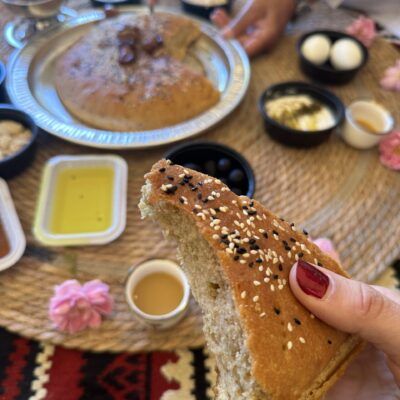
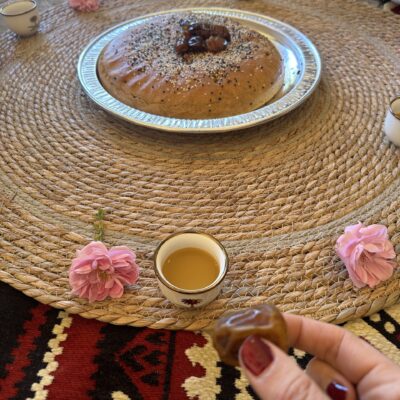


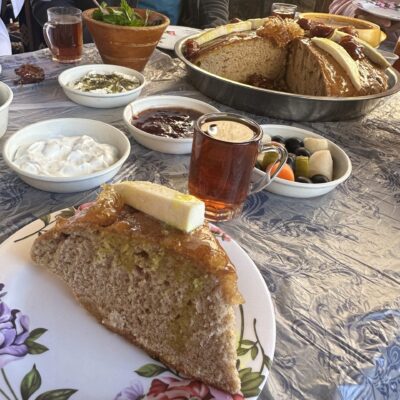
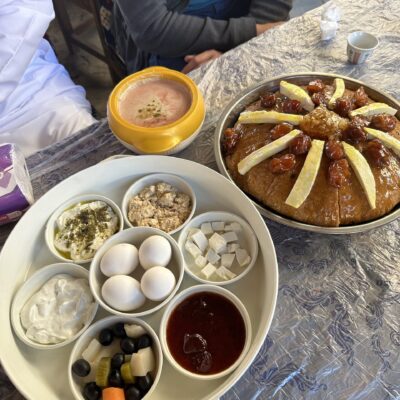
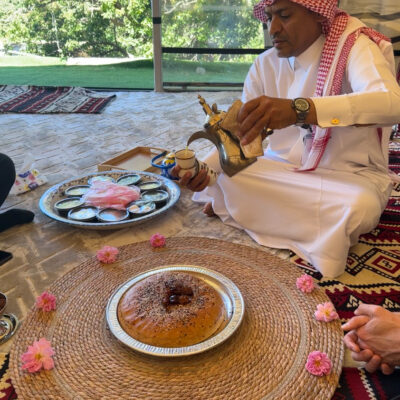
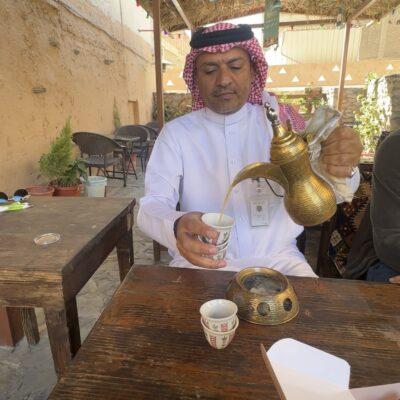
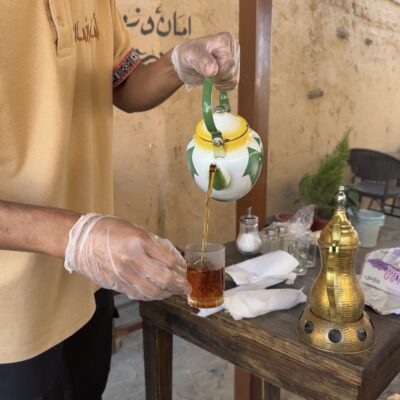


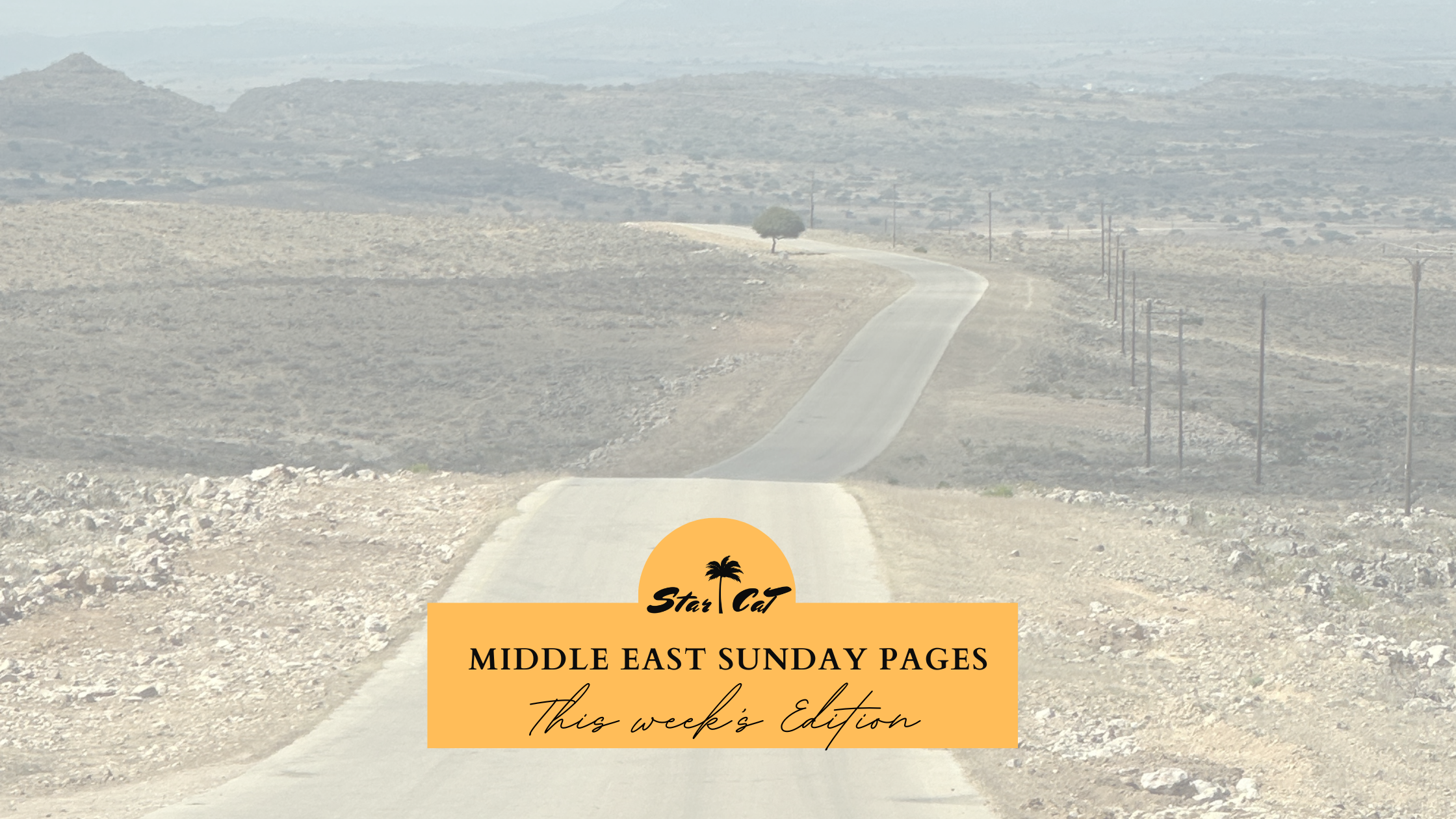
This Post Has 0 Comments